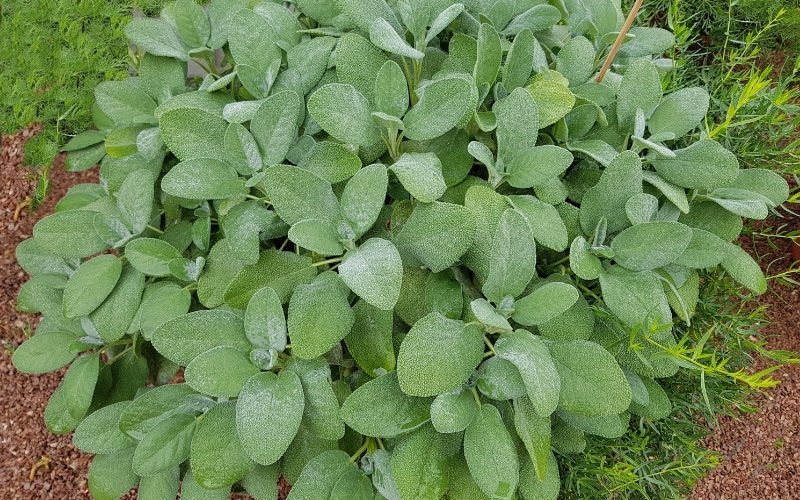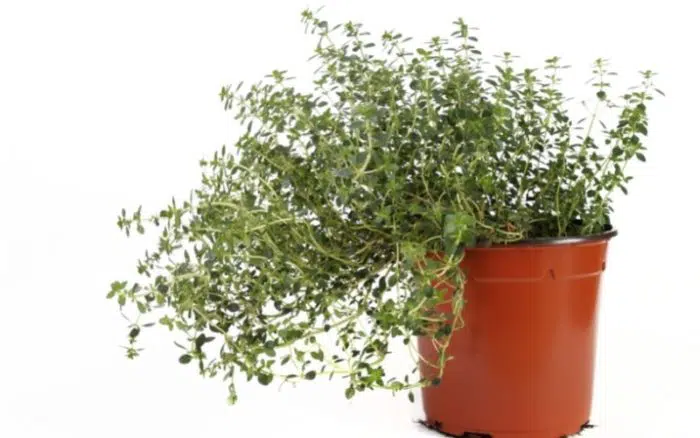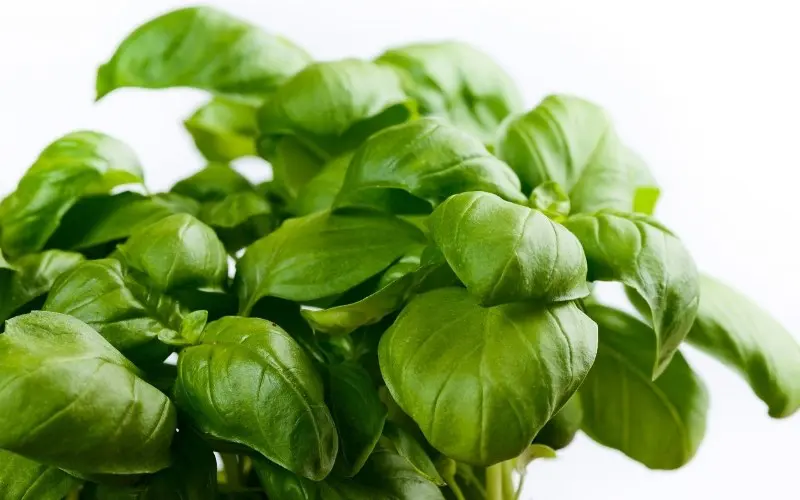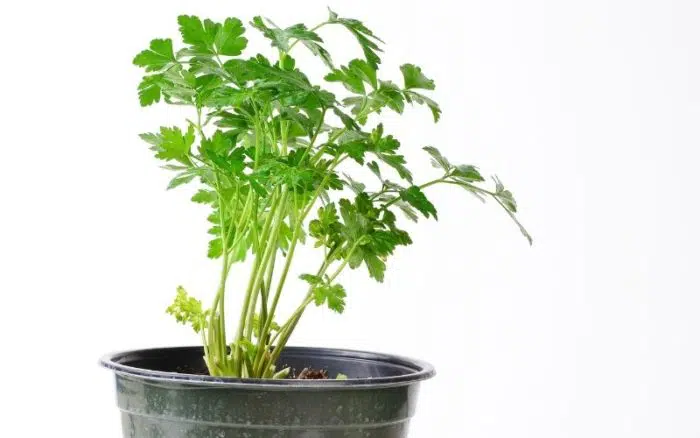I received an email from a reader recently asking about how she should plan out a new herb planter box she had built. While most herbs grow together, there are some that should be separated due to ideal growing conditions, watering requirements, and other reasons.
When planting herbs together, it’s nice to understand the concept of companion planting.
What is Companion Planting?
Companion planting is a method that involves planting two or more different crops in close proximity in order to help the other plant out in certain ways. The term “companion planting” can also refer to the practice of intercropping, which is kind of similar but not exactly the same.
When planting herbs, it is important to choose plants that will thrive in the same conditions. Some herbs, such as lavender, prefer full sun and well-drained soil. Others, such as mint, are more tolerant of shade and moist conditions.
Herbs that Grow Well Together
When you are deciding which herbs to plant together, make sure to consider the needs of each plant. Some like well-draining soil, while others prefer a moist soil.
Herbs that like similar conditions and grow well together are lavender, oregano, sage, thyme, rosemary, and oregano. Separately, basil, cilantro and parsley are great pairs for growing as they like consistent moisture.
Mint grows in a manner consistent with an invasive species, so when you plant mint, make sure to keep it away from other growing herbs or know that it needs to be pruned regularly to avoid it from overtaking the plants its growing with.
Herbs You Can Plant Together in Your Herb Garden
Here are common herbs you’ll find in a garden, along with some of their best companions.

Sage
Sage is a strongly scented herb that can be used in the kitchen, or grown for things like smudge sticks and it’s medicinal properties.
Many types of sage grow well near rosemary, thyme, and oregano. All of these herbs are drought tolerant and do well in full sun. They also have similar soil requirements and prefer a well-drained, sandy loam soil.
There are a number of good sage companion plants, but it grows well with many herbs too.
Sage Grows Well With
- Rosemary
- Thyme
- Oregano

Thyme
Thyme pairs well with several other herbs, but it can get big quickly, so keep an eye on it. Thyme is often planted alongside rosemary and oregano. This is because thyme can help to mask the strong flavor of rosemary, while oregano adds a touch of sweetness.
Thyme Grows Well With
- Rosemary
- Oregano
- Sage
- Lavender
Other herbs that can be planted with thyme include sage and lavender.
Rosemary
Rosemary is one of my favorite fresh herbs to grow. I don’t even like eating it all that much, but the smell is amazing!
Rosemary can be planted in gardens or containers and is often grown alongside other herbs such as thyme, sage, and lavender. When grown together, these herbs can help to deter pests and improve the health of the plants.
In addition, they can provide a really amazing smell to any outdoor space. If you are thinking of planting rosemary, be sure to choose a location that receives plenty of sunlight and has well-drained soil.
Rosemary Grows Well With
- Lavender
- Sage
- Thyme
Marjoram
Marjoram is a cool-weather herb that’s closely related to oregano. It has a milder flavor than oregano but you can use marjoram fresh or dried in a million different ways in the kitchen.
Marjoram is a versatile herb that can be planted with several other herbs, including basil, chives, and thyme. When planting marjoram with other herbs, just make sure to give it enough space to spread out.
Marjoram is perennial, which means it will come back year after year if you take care of it properly and let it overwinter.
Marjoram Grows Best With
- Basil
- Chives
- Thyme
Oregano
When planting oregano, it is important to choose a location that receives full sun and has well-draining soil. Oregano can be planted together with other herbs such as basil, thyme, rosemary, and sage.
Oregano Grows Well With
- Basil
- Thyme
- Rosemary
- Sage

Basil
Basil is a versatile herb that can be used in a variety of dishes, from tomato sauce to pesto. There are so many varieties of basil to choose from that if you don’t like “regular” basil, you can try purple or lettuce leaf and get a different flavor.
When planting basil, it’s important to choose a spot in your garden that gets plenty of sunlight.
Basil also does well when planted near other herbs, such as oregano, parsley, and thyme. Planting these herbs together can help to keep certain pests away and improve the flavor of your basil.
Basil Grows Well With
- Parsley
- Thyme
- Oregano
- Cilantro

Parsley
Parsley is also known for its ability to deter pests, making it a great companion plant for many herbs that are susceptible to insect damage. When planting parsley, be sure to give it plenty of room to spread. It can quickly take over a garden bed if left unchecked, so it’s best to plant it in an area where it won’t crowd out other plants.
You might also want to grow extra parsley if you plan to eat it, as butterflies are huge fans of parsley and often “claim” a few plants to lay their eggs on.
Parsley Grows Well With
- Basil
- Cilantro
- Oregano
Benefits of Companion Planting
Companion plants can help certain plants out immensely. When you plant herbs, most of them help other vegetables and crops thrive.
Some of the other benefits of companion plants include:
- Attract beneficial insects that help out the other plants
- Repelling pests that might negatively impact the other plant
- Improving the taste of the other crop
- Improving the soil and nutrients
For example, when you plant basil near your tomato plants, the herb can help repel hornworms, but also make the tomato fruits taste better!
Most herbs can also be planted together as companions and to repel pests. Rosemary and sage make good companions, and they both have a strong scent that can help to deter rabbits and deer.
When planning out your garden, companion planting is a good method to keep in mind. You might want to check out some of the lists of good companion plants for these herbs if you plan on growing vegetables nearby as well.


